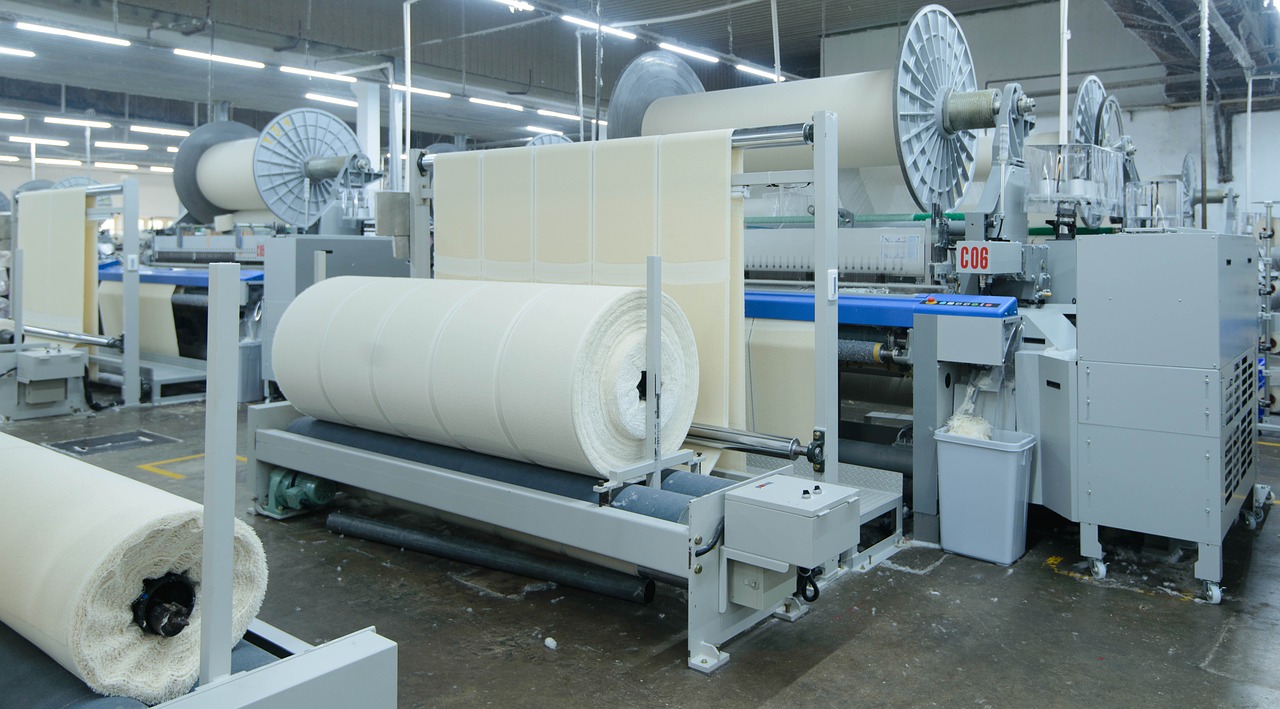The textile machinery industry plays a crucial role in the production of fabrics and textiles that we use in our everyday lives. From clothing and household textiles to industrial applications, textile machinery forms the backbone of the textile manufacturing process. As demand for textiles continues to grow worldwide, the textile machinery industry is poised for significant expansion and innovation.
At the heart of the textile machinery industry lies a diverse array of machines designed to perform specific tasks in the textile manufacturing process. These machines include spinning machines, weaving looms, knitting machines, dyeing and finishing equipment, and textile printing machinery. Each machine plays a vital role in transforming raw materials like cotton, wool, and synthetic fibers into finished textiles ready for use.
The demand for textile machinery is being driven by several factors. Firstly, the global population continues to grow, leading to an increased demand for clothing, home textiles, and industrial textiles. As emerging economies experience rising incomes and urbanization, consumers are demanding higher-quality textiles and a wider variety of designs and patterns. This demand puts pressure on textile manufacturers to invest in advanced machinery capable of producing textiles quickly, efficiently, and with high precision.
According to a recent research, the market for textile machinery is expected to grow from its estimated US$ 29 billion in 2023 to US$ 52 billion by 2033.
 |
| Machine-woven fabric machinery |
The technological advancements are driving innovation in the textile machinery industry. Automation, robotics, and digitalization are revolutionizing the way textiles are manufactured, leading to higher productivity, reduced labor costs, and improved quality control. For example, computer-controlled knitting machines can produce intricate designs and patterns with minimal human intervention, while advanced dyeing and finishing equipment can achieve precise color matching and fabric treatments.
The textile machinery manufacturers focused on include, A.T.E. Enterprises Private Limited, Savio Macchine Tessili S.p.A, Murata Machinery Ltd, Mayer & Cie GmbH & Co. KG, Batliboi Ltd, Benninger AG, Itema S.p.A, Kirloskar Toyota Textile Machinery Pvt. Ltd, Picanol Group, Lakshmi Machine Works Ltd, Navis TubeTe, Saurer AG
The future scope of the textile machinery industry looks promising as manufacturers continue to invest in research and development to meet evolving market demands. Sustainable manufacturing practices are becoming increasingly important, with consumers and regulatory bodies demanding eco-friendly textiles and production processes. Textile machinery manufacturers are responding by developing energy-efficient machines, recycling technologies, and water-saving processes to reduce the industry's environmental footprint.
Further, the rise of smart textiles and wearable technology presents new opportunities for the textile machinery industry. Machines equipped with sensors, artificial intelligence, and connectivity capabilities are enabling the production of functional textiles capable of monitoring vital signs, regulating body temperature, and providing enhanced comfort and performance. These innovations have applications not only in fashion and apparel but also in healthcare, sports, and automotive industries.



